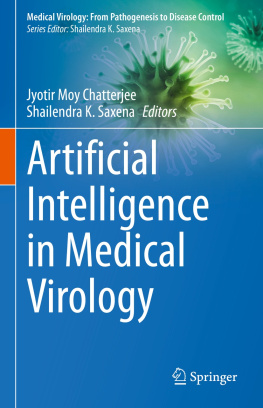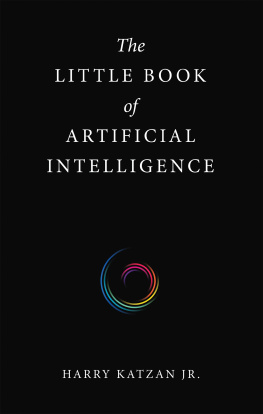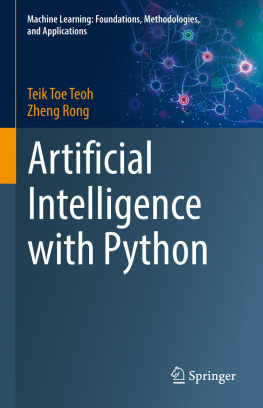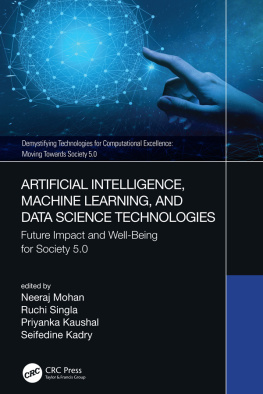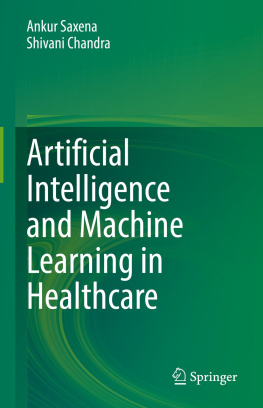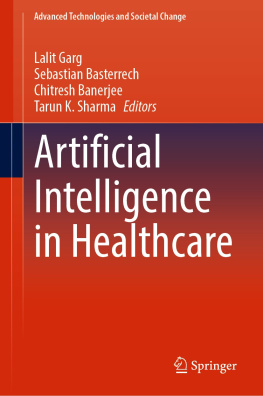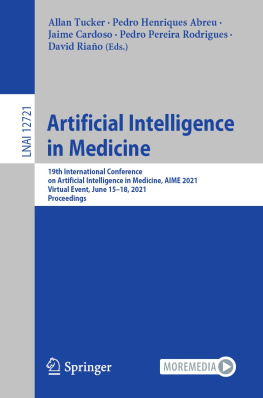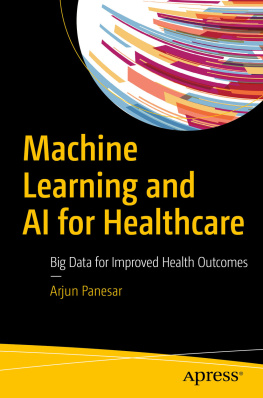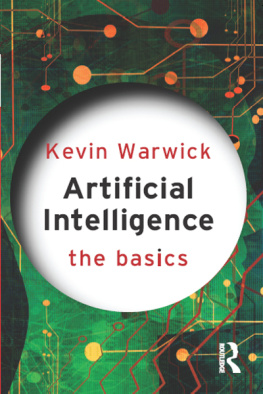There is no Reason and no Way that a Human Mind can Keep up With an Artificial Intelligence Machine By 2035 .
Gray Scott
Once in a Generation
A breakthrough changes the entire scientific landscape. In the 1940s, it was the Manhattan Project that helped open up the secrets of the atom. In the 1960s, it was the race to the moon that opened up space travel. In the early 2000s, it was the Human Genome Project that determined the sequence of the nucleotide base pairs that make up human DNA as well as identifying and mapping all the genes of the human genome from both a physical and a functional standpoint.
I like to divide the history of medicine intro four eras:
- BG: Before the genome
- AG: After the genome
- BA: Before artificial intelligence (AI)
- AA: After AI
To me, the Human Genome Project marks the transition from the age of discovery to the age of mastery. Having unraveled the fundamental code of our biology, the stage is set for us to manipulate and proactively make sense of it. The biomolecular revolution has begun and is changing everything, including modern medicine. Medicine has gone through at least four basic stages.
The Germ Era (16th Century Onward)
The germ theory was first proposed by Girolamo Francastoro in 1546, although it took some time before it gained widespread acceptance. The germ theory is what led to us improving sanitation and hygiene standards and, ultimately, creating modern sewage systems.
The Antibiotic Era (20th Century)
Most notable for the development and use of penicillin, the antibiotic era allowed us to start vaccinating people against illnesses and to carry out modern surgery.
The Genome Era (Early 21st Century)
The genome era marks the beginning of contemporary medicine, and I like to split it into two eras: BG and AG. For me, the Human Genome Project marks the transition from BG to AG as we went from discovery to mastery. Having unraveled the fundamental code of our biology, the stage is set for us to manipulate and proactively make sense of it. The biomolecular revolution has begun and it is starting to change everything, including modern medicine. As far back as 2000, the then-president Bill Clinton even went on record to say, Genome science will have a real impact on all of our lives and even more on the lives of our children.
The AI Era (Late 21st Century)
As with the previous era, this can be separated into two subcategories: BA and AA. We are currently in the BA days, at least when it comes to the full potential impact of artificial intelligence in the healthcare industry. When we reach the AA stage, we will see the most profound change of all as the healthcare system embraces the power of genetic medicine beyond the genes. AI technology has been around in the healthcare industry since the 1950s, but it will only be in the coming years that its true impact is felt across the healthcare industry and beyond.
Our modern healthcare is more advanced than it has ever been before, but that does not make it perfect. There are plenty of problems with it, like the fee-for-service system, which has led to a transactional type of healthcare in which people wait to get sick before being treated instead of heading illness off at the pass. At the same time, healthcare costs are going through the roof, and physicians are struggling to spend enough time with their patients.
A classic example of how AI can take an existing problem in the healthcare industry and turn it into advantage is the way we handle electronic health records (EHRs). At the moment, physicians are spending more time filling out patients health records than they are providing face-to-face care. If AI can take this task on under the oversight of qualified physicians, it would free up that time and allow doctors to spend twice as much time with their patients. To look at it from another perspective, that would have the same impact on face-to-face time as more than doubling our current number of healthcare practitioners.
I like to think that AI is the great predictor, especially because it tends to get better at making its predictions over time. This is good news because the next stage of healthcare, a more personalized stage, requires predictive medicine and value-based healthcare, and AI might be the tool we need to deliver that.
At its most basic level, AI is any form of intelligence that is displayed by machines. The idea is to differentiate between intelligence shown by animals and human beings and intelligence shown by computers. True general AI is almost impossible to achieve, especially with todays technology, which is why AI technologies typically work by mimicking the way that a human mind works. Developers are focusing on creating the infrastructure that will power virtual cognitive functions, such as the ability to perceive, understand, calculate, express, and remember. AI technology differs from regular computer software because of its ability to mimic human reasoning, as well as to create things and to solve problems. A great example of a creative AI is Amper, which powered the first ever music album that was entirely composed and produced by AI software.
Unlike other forms of computer software, AI is not static and does not just follow pre-set rules that were laid down by a programmer. It is designed to learn and to think, just like a person does, and that is what makes it so powerful. After all, our ability to learn, think, and arrive at conclusions is what makes human beings so versatile and creative. We spend the first years of our life learning in schools and colleges, and we absorb complex ideas and concepts by reading books and watching films. We learn to express ourselves through speech and art forms like writing and making music, and gain the ability to solve problems or draw new conclusions through trial and error.
When we look at other human beings, we are looking at the end result of a long learning process. The intelligence that we display as a species, and which we often cite as the factor that makes us different from machines and other animals, is only possible because of millions of years of evolution.
The process of learning something usually starts with specific examples that we can then generalize and turn into knowledge that can be applied more broadly. This is especially true in todays day and age, when there is no real need for us to memorize lists of presidents by rote when we can just look them up on our smartphones. Instead of just memorizing information, we are focusing more and more on learning theory that can then be applied in practice.
This concept is what makes AI different to traditional computing, because it does not just respond to a pre-defined input with a pre-defined output. Instead, it learns like we do, but on top of that, it also has the ability to process information and to come to conclusions much faster than any human being ever could. And, when we combine the promise of AI with Internet connectivity, big data, and the fact that computers do not get tired or forget things, you can start to see why AI has the potential to change the world.
Your smartphone, house, bank and car already use AI on a daily basis, explain Facebook engineering leads Yann LeCun and Joaquin Quionero Candela.
Sometimes it is obvious, like when you ask Siri to get you directions to the nearest gas station, or when Facebook suggests a friend for you to tag in an image you posted online. Sometimes less so, like when you use your Amazon Echo to make an unusual purchase on your credit card and get a fraud alert from your bank. AI is going to bring about major shifts in society through developments in self-driving cars, medical image analysis, better medical diagnosis, and personalized and predictive medicine. It will also be the backbone of many of the most innovative apps and services of tomorrow.
Next page

